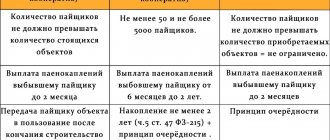An important factor that influences the practice of using simplified proceedings is the mandatory nature of its use. If there are mandatory conditions, the court does not require the consent of the parties. They cannot refuse to consider the case through summary proceedings. We will tell you what needs to be done so that the claim is not considered without your participation through summary proceedings against your will. It is important not to miss the deadline for refusing to consider a dispute in summary proceedings and to challenge an unexpected decision in a timely manner.
Leaving without consideration or termination of proceedings
The grounds are stated in Art. 148 APK:
- A similar case is pending in another court: a general court, an arbitration court.
- Failure to comply with the mandatory out-of-court procedure for resolving a dispute.
- During the establishment of facts that have legal significance, a disagreement about the law arose.
- The claim is considered within the framework of a case of insolvency of citizens or legal entities.
- The claim is not signed or ratified by a person who does not have the authority to take this action.
- A claim was filed to recover legal costs. The case is being considered under Art. 112 APK.
- Second failure of the plaintiff to appear in the courtroom. However, he did not file a motion to consider the case when he was absent, and also did not ask to postpone the court hearing.
- An agreement between the parties that their dispute will be considered in arbitration.
When the counterclaim is returned
Art. 132 of the APC establishes that a counter-statement is returned if the conditions provided for by the provisions of Article 129 are not met. In particular:
- lack of jurisdiction of the court case;
- the application must be considered in writ proceedings;
- the plaintiff, upon motion, returns the original claim;
- failure to eliminate the circumstances that caused the claim to be abandoned;
- failure to comply with the mandatory pre-trial dispute resolution procedure;
- the claim is not signed by the defendant, or ratified by a person who does not have the right to do so.
What are the purposes of its presentation?
If the law allows, under Article 132, to file a counter-application with the Arbitration Court of the Russian Federation, then the defendant’s side willingly takes advantage of this opportunity. This will save time. The controversial legal relationship will be considered within one case.
A counterclaim always defends the defendant's position in the dispute. And this is one of the ways to declare your rights to the latter without taking them beyond the framework of one process.
The RF CA accepts this application and considers it if:
- There is a relationship with the main claim.
- Offsetting the original claim.
- This will help resolve the dispute faster.
- His satisfaction may exclude a positive decision on the main one, both in full and in part.
IMPORTANT: the claim under consideration is submitted only to 1 instance, is accepted by it for proceedings, and the process begins anew. If the judge in the proceedings has several cases with common grounds and claims that meet the criteria (the main one, met), the court is obliged, upon a petition submitted by a party to the dispute, to combine all the cases into one consideration.
Features of filing a counterclaim
The counterclaim has its own peculiarities. The requirements for exclusive jurisdiction apply to it. The statement itself has a number of nuances:
- The applicant is only the respondent
- In a counterclaim, the defendant is the plaintiff in the main claim.
- Jurisdiction is exclusive. This means that the claim is transferred to the court hearing the original claim.
Is it possible to present multiple claims in a counterclaim?
An analysis of judicial practice gives reason to say that a counterclaim is aimed at maintaining a balance in the procedural powers of the parties: the plaintiff and the defendant. And the possibility of filing this document is a way of protecting the rights of the defendant and a means of satisfying his independent demands.
The principle of equality of parties in the process, as well as the analysis of the legal norms that make up procedural legislation, prohibits the presentation of several claims as part of a counterclaim.
Submission deadlines
The defendant draws up a counterclaim and submits it to the court office. He needs to wait 5 days: during this period the issue of admitting him to trial is decided. The court checks whether the application meets the requirements of Art. 127.1 of the APC, as well as the grounds for accepting a claim or refusing this action under Art. 127 APK.
After this, the grounds on which the claim is returned are analyzed. This will happen if the judge finds grounds for this, which are set out in Art. 129 APK. Either they will not be found according to Art. 132, part 3 of the APC.
If such a claim is accepted, the judge makes a ruling. It must explain why he accepted the counterclaim for consideration. The claims - initial and counter - are combined with each other, and the case is considered within the framework of one proceeding.
The disadvantage of this procedural action is that the process is delayed. If the court did not accept the claim and returned it back to the defendant, his actions can be appealed. This right of the defendant is provided for in Art. 129 APC, part 4. The appeal procedure is described in Art. 188 Arbitration Procedure Code of the Russian Federation. According to the rules of this article, the determination of the Administrative Court of the Russian Federation relating to the 1st instance is appealed within one month from the date of refusal to accept the claim.







